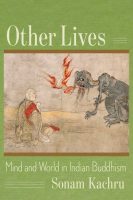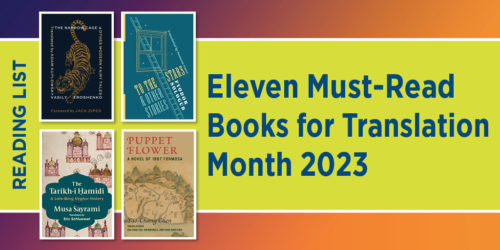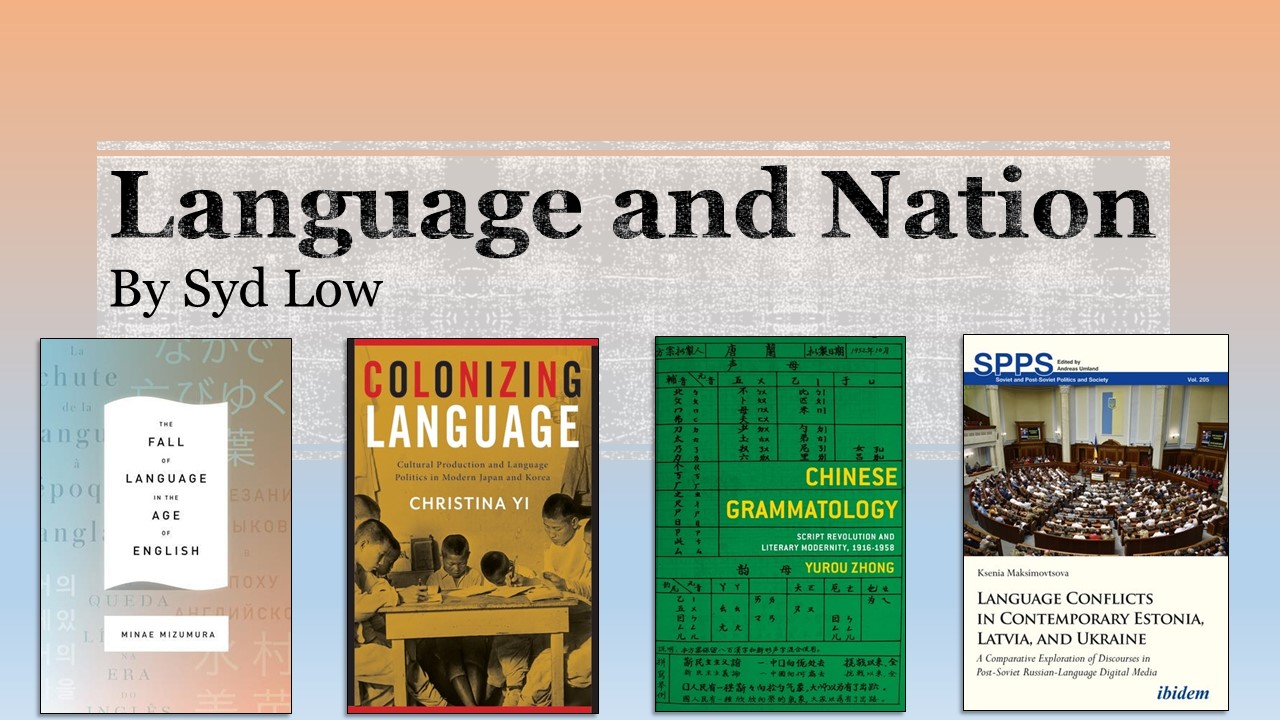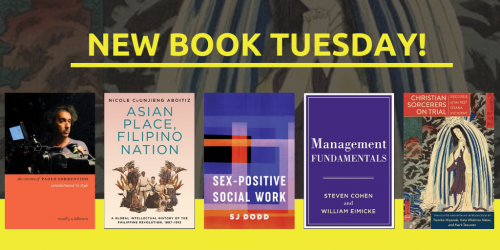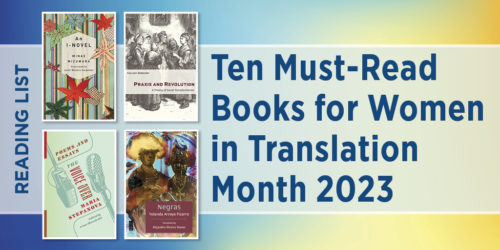Browse Our AAS Virtual Exhibit Booth and Our Asian Studies Catalog
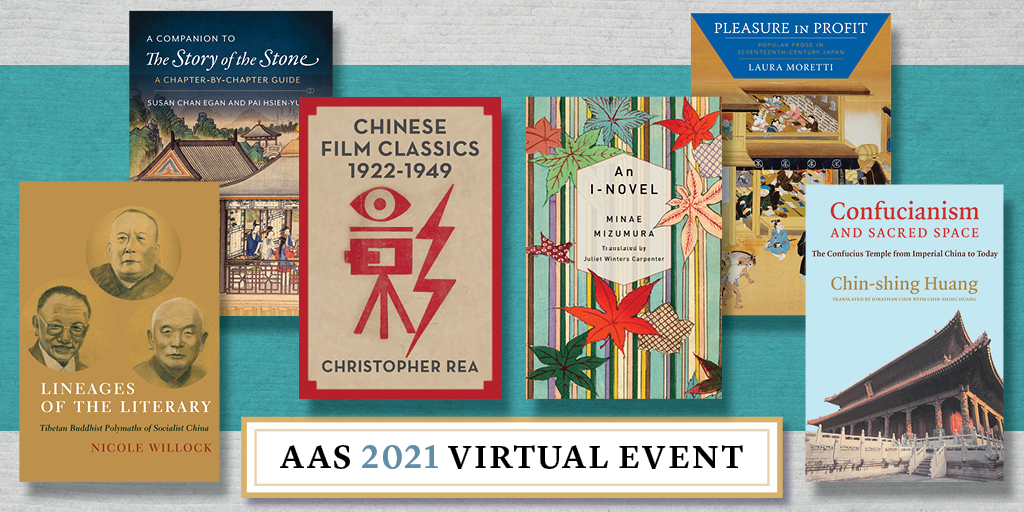
Asian studies is a major focus at Columbia University Press, and all of us who would usually be at the Association for Asian Studies Conference this week are disappointed not to be meeting you in person. We’ve highlighted a small selection of our new titles below, and we hope you will also check out our book list and subject catalog. These books span many fields within Asian studies—history, politics, literary studies, philosophy, religion, and film—and reflect the interdisciplinary and global approach of our list.
First and foremost, we would like to congratulate Yurou Zhong, whose Chinese Grammatology: Script Revolution and Literary Modernity, 1916–1958 was recognized with an honorable mention by the Joseph Levenson Prize’s Post-1900 Committee. We are also delighted to make available in English translation Ying-shih Yü’s classic The Religious Ethic and Mercantile Spirit in Early Modern China and Chin-shing Huang’s Confucianism and Sacred Space: The Confucius Temple from Imperial China to Today. Yuri Pines helps us to make sense of new archeological findings in Zhou History Unearthed: The Bamboo Manuscript Xinian and Early Chinese Historiography. And Laura Moretti’s Pleasure in Profit offers a comprehensive reevaluation of seventeenth-century Japanese literature through the lens of trade publishing, from self-help to get-rich-quick books.
In history and politics, Columbia continues its long tradition of publishing cutting-edge works that speak to Asia’s past and present. We are especially pleased to debut new histories of Asia that span a wide range of periods, from Audrey Truschke’s The Language of History: Sanskrit Narratives of Indo-Muslim Rule to Eric Schluessel’s Land of Strangers: The Civilizing Project in Qing Central Asia. These works join our recent modern histories of the region, such as Yoshikuni Igarashi’s Japan, 1972: Visions of Masculinity in an Age of Mass Consumerism and Peter E. Hamilton’s Made in Hong Kong: Transpacific Networks and a New History of Globalization.
In politics, Saori N. Katada takes a closer look at how Japan shapes the region’s economic order in Japan’s New Regional Reality: Geoeconomic Strategy in the Asia-Pacific. And in U.S. Strategy for the Asian Century: Empowering Allies and Partners, Abraham M. Denmark provides an incisive account of the paths forward for American foreign policy in Asia.
Among the many new outstanding philosophy and religion titles in this year’s wide-ranging catalog several deserve special attention. Other Lives: Mind and World in Indian Buddhism by Sonam Kachru demonstrates that Vasubandhu’s theory of mind offers the first enactivist account in world philosophy. Avram Alpert’s A Partial Enlightenment explores Buddhism as it has been imagined in global modernist literature, concluding that personal and social change are possible only when we recognize that suffering is inevitable. And in Lineages of the Literary: Tibetan Buddhist Polymaths of Socialist China, Nicole Willock analyzes the writings of three Tibetan Buddhist scholars in the post-Mao era and shows how they by turns safeguarded, taught, and celebrated Tibetan Buddhist knowledge, practices, and institutions at a pivotal juncture in Sino-Tibetan history.
Columbia’s Asian studies list has, from its inception, been dedicated to providing quality translations and other teaching materials. Christopher Rea developed Chinese Film Classics, 1922–1949 specifically for classroom use, and the accompanying website and YouTube channel provide video lectures and subtitled films. Susan Chan Egan and Pai Hsien-yung’s A Companion to The Story of the Stone can help make teaching the epic text to undergraduates feasible and fun. Budding historians will enjoy the trove of primary documents presented by Fumiko Miyazaki, Kate Wildman Nakai, and Mark Teeuwen in their Christian Sorcerers on Trial: Records of the 1827 Osaka Incident. Minae Mizumura’s An I-Novel, translated by Juliet Winters Carpenter, will inspire conversations ranging from genre to identity, and Immanuel Kim’s rendition of Friend by Paek Nam-nyong is the first novel from the DPRK available in English translation.
Caelyn Cobb, editor for global history and politics
Christine Dunbar, editor for Asian humanities and translations
Wendy Lochner, publisher for philosophy and religion
You can save 20 percent on any AAS featured title when you use coupon code AAS at checkout now through May 1, 2021.
Categories:Asian StudiesAssociation for Asian StudiesBook ExcerptCatalogsColumbia University PressVirtual Exhibits
Tags:A Companion to The Story of the StoneA Partial EnlightenmentAAS2021Abraham M. DenmarkAn I-NovelAudrey TruschkeAvram AlpertChin-shing HuangChinese Film Classics 1922–1949Chinese GrammatologyChristian Sorcerers on TrialChristopher ReaConfucianism and Sacred SpaceEric SchluesselFriendFumiko MiyazakiHoyt Cleveland TillmanImmanuel KimJapan 1972Japan's New Regional RealityJonathan ChinJuliet Winters CarpenterKate Wildman NakaiLand of StrangersLaura MorettiLineages of the LiteraryMade in Hong KongMark TeeuwenMinae MizumuraNicole WillockOther LivesPaek Nam-nyongPai Hsien-yungPleasure in ProfitSaori N. Katada 片田さおりSonam KachruSusan Chan EganThe Language of HistoryThe Religious Ethic and Mercantile Spirit in Early Modern ChinaU.S. Strategy in the Asian CenturyYim-tze KwongYing-shih YüYoshikuni IgarashiYuri PinesYurou ZhongZhou History Unearthed


